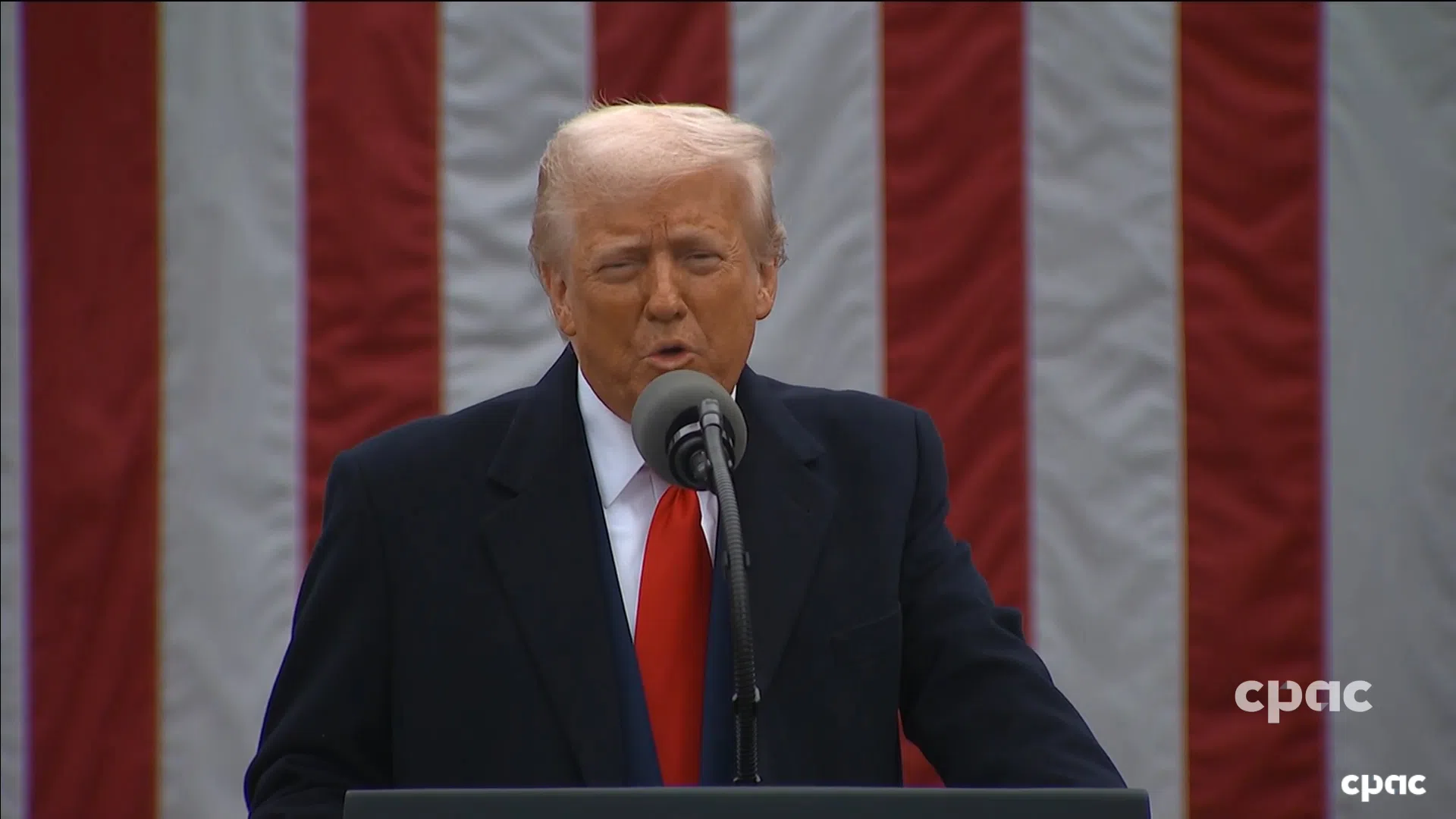Canada has been exempt from sweeping new tariffs unveiled by U.S. President Donald Trump, but existing duties will remain in place.
Trump announced Wednesday a “baseline” 10 per cent tariff on all countries, with reciprocal tariffs as high as 50 per cent for those that have “the largest trade deficits” with the U.S.
“They do it to us, and we do it to them. Very simple, can’t get any simpler than that,” Trump said on Wednesday, a day he has referred to as “Liberation Day.”
“For decades, our country has been looted, pillaged, raped and plundered by nations near and far, both friend and foe alike. But it is not going to happen anymore.”
But officials later clarified that the new tariffs would not impact Canada or Mexico, which already face 25 per cent tariffs on goods that are not compliant with the US-Mexico-Canada (USMCA) free trade agreement.
A fact sheet published by the White House said all USMCA-compliant goods will continue to see a zero per cent tariff, non-compliant goods will face a 25 per cent tariff, and non-compliant energy and potash will see a 10 per cent tariff.
A 25 per cent tariff on Canadian steel and aluminum that went into effect in March will remain in place for the foreseeable future.
The president also confirmed that a previously-announced 25 per cent tariff on all automobile imports would go into effect Wednesday night.
Prime minister vows to fight remaining duties
While Canada managed to escape Trump’s reciprocal global tariffs, Prime Minister Mark Carney is vowing to fight the duties that remain with countermeasures.
“We are going to protect our workers, and we are going to build the strongest economy in the G7,” Carney told reporters Wednesday evening on Parliament Hill.
“In a crisis, it’s important to come together, and it’s essential to act with purpose and with force, and that’s what we will do.”
Canada has already applied 25 per cent countertariffs to nearly $60 billion worth of U.S. products in response to tariffs from the Trump administration.
Carney said while Trump preserved “important elements” of their trading relationship, the U.S. has signaled there will be additional tariffs on pharmaceuticals, lumber and semiconductors.
He added that the reciprocal tariffs announced by the U.S. president will “fundamentally change the international trading system.”
Carney said the government will have more to say after meeting with cabinet ministers Wednesday evening and premiers on Thursday morning.
The Conservative and NDP leaders also reacted to the trade tariffs earlier in the day.





